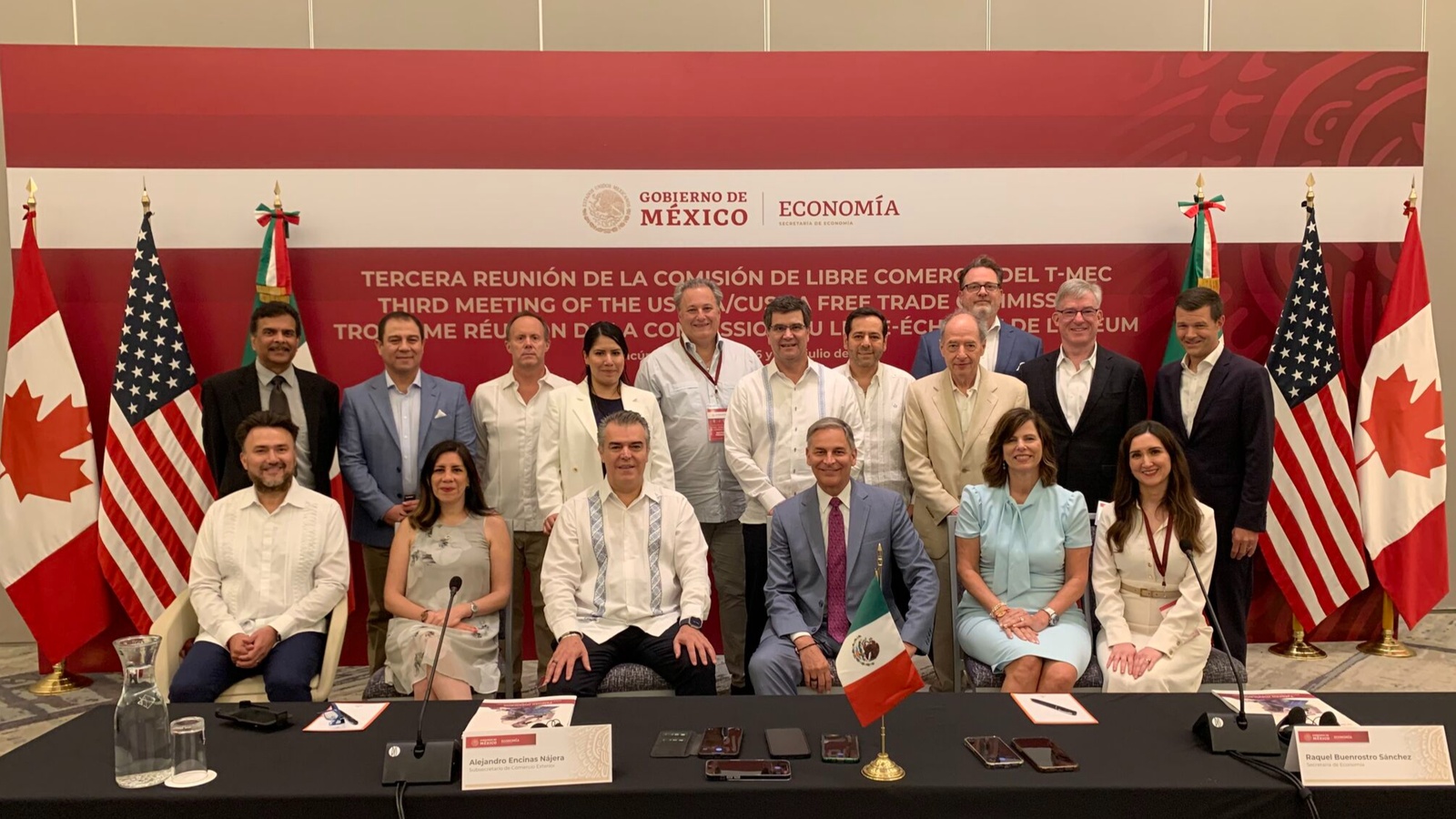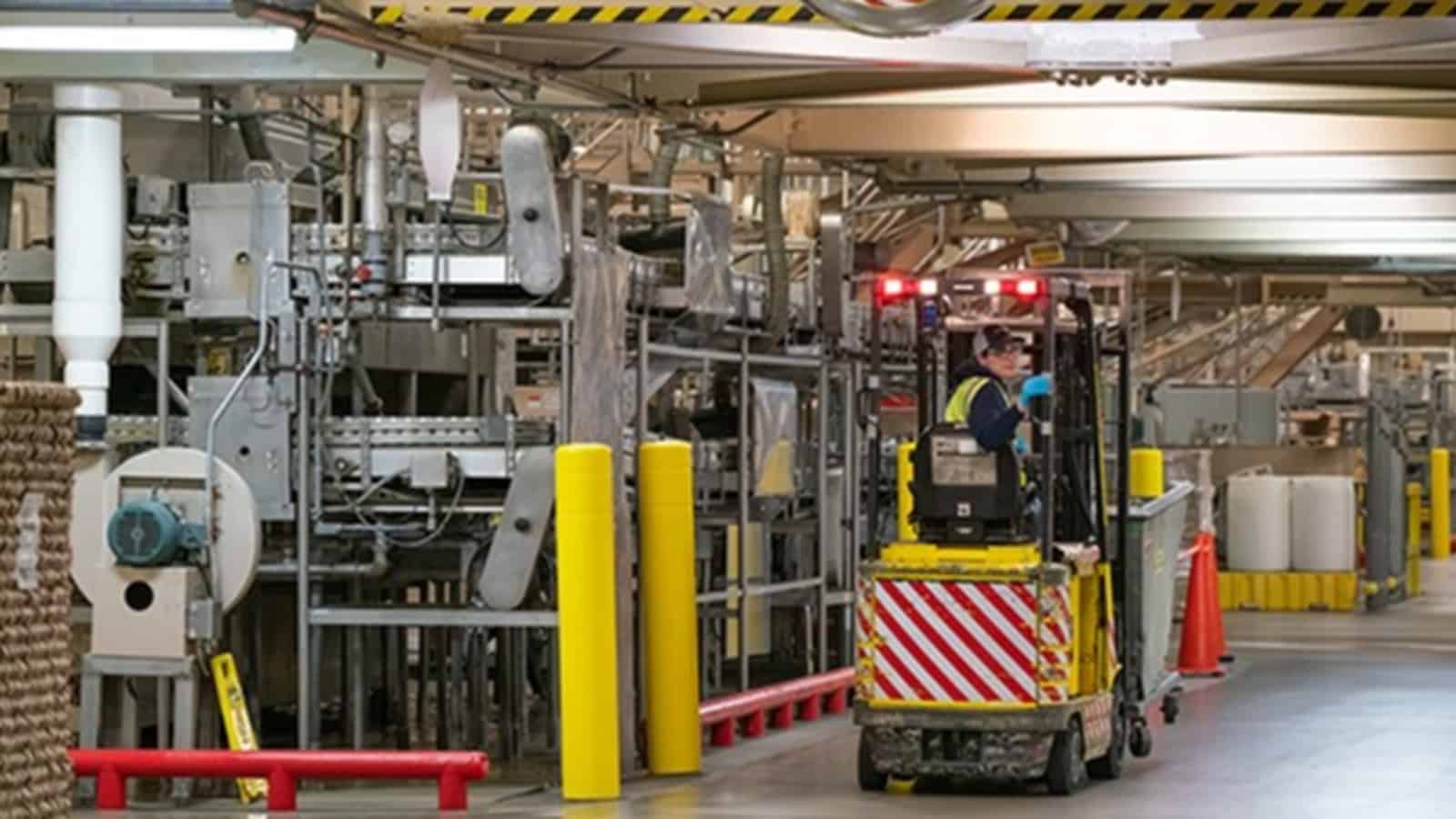NAM Study: Employer-Provided Health Plan Costs Are Rising

Providing health care benefits to workers is becoming increasingly expensive for manufacturers, but Congress can take measures to help offset these costs, according to a new NAM study.
What’s going on: The NAM released “Manufacturers on the Front Lines of Communities: A Deep Commitment to Health Care” yesterday. The report includes the results of surveys and manufacturer interviews that detail industry-wide health benefits and trends, as well as federal policy proposals that could jeopardize manufacturers’ ability to continue offering health care plans.
Key findings: Below are some of the report’s most notable takeaways:
- Tax incentives: Designing and offering health care benefits is getting more expensive for employers. To fight these rising costs, Congress must keep in place the tax benefits offered to companies providing such plans to workers.
- Affordability: Employer-offered health care must be affordable for employees. To ensure that it is, Congress should consider seeking revision of some of the opaque rules governing health and flexible savings accounts and pharmacy benefit managers.
- Early intervention: Intervening in health-related situations early—as in the cases of obesity, cancer and other conditions—can lower future costs for employers and employees alike. Primary care can catch and help correct many illnesses and so must be incentivized.
The last word: “Manufacturers feel a deep commitment to providing quality health care for their employees despite the increased costs and challenges of doing so,” said NAM Director of Human Resources and Innovation Policy Julia Bogue.
- “Manufacturers are innovative in their health benefits to best address the challenges employees face, from primary care to chronic-condition management.”
NAM Advances Manufacturing Priorities at USMCA Meeting in Mexico

The NAM met with North American trade ministers last week in Cancun, Mexico, where it urged them to take up key trade priorities for manufacturers.
What happened: The NAM led a delegation from the American business community, which participated in a roundtable discussion ahead of the third United States–Mexico–Canada Agreement “Free Trade Commission” on July 7 in Cancun.
- Attendees at the roundtable event included NAM President and CEO Jay Timmons, U.S. Trade Representative Katherine Tai, Canadian Minister of Small Business, Export Promotion and International Trade Mary Ng, Mexican Secretary of the Economy Raquel Buenrostro and business executives from the three countries, including Rockwell Automation Chairman and CEO Blake Moret.
Shared values: The NAM underscored the importance of an investment climate underpinned by core democratic principles, such as transparency and the rule of law.
- “We believe in democracy,” Timmons said. “However imperfect, this system fosters free enterprise, competitiveness, individual liberty and equal opportunity. These values make manufacturing strong in our countries.”
- He added that each year North American manufacturers contribute $3 trillion to the U.S., Canadian and Mexican economies.

What must be done: Though the USMCA already creates advantages for North American manufacturers, the agreement’s full potential can only be realized if the three countries work together to address certain key challenges, Timmons told the attendees. Some of the main hurdles include:
- Mexico’s power-generation policies, which have long favored Mexican state-owned energy companies and led to higher bills for manufacturers that must use existing energy-supply contracts;
- Permitting delays for U.S. projects in Mexico that undercut American firms and reduce energy supply to North American manufacturers and consumers;
- Mexico’s expanded food-labeling requirements and bans on the sale of some U.S. foods and nonalcoholic beverages to minors, which unjustly restrict U.S. exports;
- High spectrum fees in Mexico that deter telecommunications competition, as well as the country’s weak patent enforcement, delayed approvals of pharmaceuticals and bans on certain chemicals and genetically modified corn; and
- Delays in the reform of Canada’s patent system, ongoing restrictions in Canada’s dairy market, a Canadian government proposal to brand “plastic manufactured items” as “toxic substances” and a change to Quebec packaging and labeling requirements that will upend decades of intellectual property law and could limit access to the Quebec market.
The last word: “Ensuring North American economic integration and regional competitiveness will require a multipronged effort that focuses on robust implementation of the USMCA, ensuring a competitive North American energy market and providing support for the manufacturing workforce across the region, among other key elements,” said NAM Vice President of International Economic Affairs Ken Monahan, who joined Timmons in Cancun.
- “The NAM has positioned itself as a leading U.S. business organization on North American trade and economic matters, and we look forward to continuing to engage with our member companies on these issues going forward.”
NAM to Congress: Protect Manufacturers from SEC Overreach and ESG Activists

Manufacturers across the United States are driving economic expansion while also supporting sustainable business practices, enhancing diversity in the workforce and combatting climate change. Yet, politically motivated activists threaten to slow this progress by insisting on their own narrow agendas. Recent actions by the Securities and Exchange Commission will empower these groups and divert resources from manufacturers’ investments in job creation and business growth.
As the Financial Services Committee in the House of Representatives begins a monthlong hearing series on environmental, social and governance topics and other issues related to the proxy process, NAM President and CEO Jay Timmons is calling on Congress to rein in the SEC’s regulatory overreach and keep activists out of the boardroom.
Depoliticizing corporate governance: Activists on the left and right are increasingly abusing the proxy ballot to advance narrow social and political agendas. The SEC has taken steps in recent years to support and empower these activists.
- The NAM is suggesting reforms to the rules governing shareholder proposals that will prevent activists from hijacking the proxy ballot in pursuit of political agendas unrelated to long-term business growth and shareholder value creation.
Reining in proxy advisory firms: Despite their significant conflicts of interest, errors and lack of transparency, proxy firms exercise outsized influence on corporate governance. More oversight and accountability are needed to protect manufacturers and Main Street investors from these powerful actors.
- The NAM is pressing Congress to ensure that proxy firms are regulated appropriately by the SEC—including by requiring that the firms disclose and manage their conflicts of interest and allow companies to review their draft recommendations.
Protecting Main Street investors: In the face of pressure from ESG activists and proxy firms, the financial institutions that manage Americans’ 401(k) accounts and pension plans must take steps to protect these Main Street investors’ retirement savings.
- The NAM is calling on lawmakers to ensure that asset managers cast proxy votes and make investing decisions solely in Main Street investors’ financial best interests—and without over-relying on proxy firms and ESG ratings organizations.
Limiting ESG disclosure mandates: The SEC’s aggressive ESG rulemaking agenda will increase costs and liability for manufacturers and overwhelm investors with a deluge of irrelevant information.
- The NAM is urging Congress to limit any SEC disclosure mandates to information that is material to shareholders’ investing and voting decisions.
The last word: “Congress must step in to depoliticize the business decisions that impact the lives and life savings of millions of Americans,” said Timmons. “Manufacturers are determined to create jobs, lead the economy and improve the quality of life for all Americans. We are counting on [Congress’] leadership to counter the SEC’s regulatory overreach and help us achieve these goals.
NAM Advances Manufacturing Priorities at USMCA Meeting in Mexico

The NAM met with North American trade ministers last week in Cancun, Mexico, where it urged them to take up key trade priorities for manufacturers.
What happened: The NAM led a delegation from the American business community, which participated in a roundtable discussion ahead of the third United States–Mexico–Canada Agreement “Free Trade Commission” on July 7 in Cancun.
- Attendees at the roundtable event included NAM President and CEO Jay Timmons, U.S. Trade Representative Katherine Tai, Canadian Minister of Small Business, Export Promotion and International Trade Mary Ng, Mexican Secretary of the Economy Raquel Buenrostro and business executives from the three countries, including Rockwell Automation Chairman and CEO Blake Moret.
Shared values: The NAM underscored the importance of an investment climate underpinned by core democratic principles, such as transparency and the rule of law.
- “We believe in democracy,” Timmons said. “However imperfect, this system fosters free enterprise, competitiveness, individual liberty and equal opportunity. These values make manufacturing strong in our countries.”
- He added that each year North American manufacturers contribute $3 trillion to the U.S., Canadian and Mexican economies.
What must be done: Though the USMCA already creates advantages for North American manufacturers, the agreement’s full potential can only be realized if the three countries work together to address certain key challenges, Timmons told the attendees. Some of the main hurdles include:
- Mexico’s power-generation policies, which have long favored Mexican state-owned energy companies and led to higher bills for manufacturers that must use existing energy-supply contracts;
- Permitting delays for U.S. projects in Mexico that undercut American firms and reduce energy supply to North American manufacturers and consumers;
- Mexico’s expanded food-labeling requirements and bans on the sale of some U.S. foods and nonalcoholic beverages to minors, which unjustly restrict U.S. exports;
Read the full story here.
NAM to Congress: Protect Manufacturers from SEC Overreach and ESG Activists

Manufacturers across the United States are driving economic expansion while also supporting sustainable business practices, enhancing diversity in the workforce and combatting climate change. Yet, politically motivated activists threaten to slow this progress by insisting on their own narrow agendas. Recent actions by the Securities and Exchange Commission will empower these groups and divert resources from manufacturers’ investments in job creation and business growth.
As the Financial Services Committee in the House of Representatives begins a monthlong hearing series on environmental, social and governance topics and other issues related to the proxy process, NAM President and CEO Jay Timmons is calling on Congress to rein in the SEC’s regulatory overreach and keep activists out of the boardroom.
Depoliticizing corporate governance: Activists on the left and right are increasingly abusing the proxy ballot to advance narrow social and political agendas. The SEC has taken steps in recent years to support and empower these activists.
- The NAM is suggesting reforms to the rules governing shareholder proposals that will prevent activists from hijacking the proxy ballot in pursuit of political agendas unrelated to long-term business growth and shareholder value creation.
Reining in proxy advisory firms: Despite their significant conflicts of interest, errors and lack of transparency, proxy firms exercise outsized influence on corporate governance. More oversight and accountability are needed to protect manufacturers and Main Street investors from these powerful actors.
- The NAM is pressing Congress to ensure that proxy firms are regulated appropriately by the SEC—including by requiring that the firms disclose and manage their conflicts of interest and allow companies to review their draft recommendations.
Read the full story here.
North American Manufacturing Associations Urge Political Leaders to Work Together to Live Up to Commitments of USMCA
Washington, D.C. – The leading organizations representing manufacturers and millions of manufacturing workers in the United States, Mexico and Canada released the following statement on the three-year anniversary of the United States–Mexico–Canada Agreement (USMCA/T-MEC/CUSMA)
“On this three-year anniversary, we recognize the substantial value that the United States–Mexico–Canada Agreement has represented for our industry’s competitiveness, our economies and North American workers. Manufacturing is critical for the entire North American economy. Our closely integrated supply chains contribute more than $3 trillion annually to the North American economy, and more than $2 billion worth of manufactured goods cross our borders each day.
“Free trade has benefited manufacturers across North America for decades, and the USMCA helps to secure those advantages. The USMCA can only reach its full potential if it is fully implemented in a manner that upholds its letter and spirit. The National Association of Manufacturers, the Confederation of Industrial Chambers of Mexico and Canadian Manufacturers & Exporters continue to strongly and respectfully urge political leaders of all three countries to work together to live up to the commitments of the agreement, which garnered broad support in the U.S., Mexico and Canada. Full compliance with the agreement will provide certainty for the more than 23 million manufacturing workers in the United States, Mexico and Canada and boost our region’s ability to take full advantage of the one-in-a-generation opportunity to strengthen our supply chains though the attraction of new economic activities to North America.
“The strong and unique partnership between the U.S., Mexico and Canada goes beyond our economic alliance. It is rooted in our shared values of democracy, the rule of law, transparency, free enterprise and opportunity. As we see those values under attack around the world, it is critical that we strengthen our regional alliance to elevate and defend those values—for the good of our people and people around the world, as well as for our economic and national security.”
-NAM-
The National Association of Manufacturers is the largest manufacturing association in the United States, representing small and large manufacturers in every industrial sector and in all 50 states. Manufacturing employs nearly 13 million men and women, contributes $2.90 trillion to the U.S. economy annually and accounts for 55% of private-sector research and development. The NAM is the powerful voice of the manufacturing community and the leading advocate for a policy agenda that helps manufacturers compete in the global economy and create jobs across the United States. For more information about the NAM or to follow us on Twitter and Facebook, please visit www.nam.org.
Immigration Is a Personal Cause for This Manufacturing Leader

For Fernando Torres, the vice president of operations at thermoplastics manufacturer Greene Tweed, the issue of immigration is personal. In 1996, at the age of 16, Torres immigrated to the United States. He was undocumented for a time, and he was forced to figure out how to stay afloat.
His story: Alone, without stable residency and barely speaking the language, Torres had a harrowing start in the U.S. But he worked his way through community college, where he excelled in math courses even though he wasn’t yet fluent in English. Torres attributes his love for math and science to his grandfather, who he says is the smartest man he’s ever met.
- “I had a difficult situation at the age of 16 in a new country without knowing the culture or the language, asking, what am I going to do?” said Torres. “Living in this country, it’s the country of opportunities, so I had to find ways to make it work and pursue the American dream.”
- “But, as an undocumented person, the jobs available were not pretty. Whether I was washing dishes at a seafood restaurant or cutting the lawns in Arizona in the middle of the 120-degree weather summers, I just had to find a way to survive.”
Entering the industry: After community college, Torres was accepted into Arizona State University’s program for aerospace engineering—and eventually, he found a place in the commercial sector at Greene Tweed. Today, he’s a U.S. citizen, and he’s just as passionate as ever about the value of immigration.
Immigration and manufacturing meet: Torres has seen the skills gap in manufacturing firsthand, and he knows how difficult it is to fill critical jobs. That’s one reason why immigration is so important to the manufacturing industry, he pointed out.
- “There is a shortage of people,” said Torres. “Skilled laborers are very difficult to find in our country, and retirements are outpacing anyone that’s coming in. There’s not enough people to run our factories—and if we want the economy to grow, we need people to grow it.”
An economic issue: Torres also emphasized that a person’s stance on the issue of immigration in manufacturing should come down to economic considerations.
- “We need to stop talking about immigration as a political issue—it’s a business issue,” said Torres. “We don’t have enough people to grow this economy internally. And if we can’t grow it internally, we have to open factories elsewhere. So this isn’t a political need, it’s an economic need.”
NAM’s push for change: NAM has long fought for commonsense immigration reform and outlined a series of proposals in A Way Forward—a road map that covers border security, reforms to legal immigration and permanent solutions for populations like DREAMers that are facing uncertainty.
The last word: “Immigrants are here to give, not to take away from this country—and we give a lot,” said Torres. “If it wasn’t for the waves of immigration during the last century to the United States, we wouldn’t be the number one economy in the world.”
Second Phase of CHIPS Act Funding Begins

Businesses “that provide tools, chemicals and other supplies for the semiconductor industry” may now apply for a piece of the funds set aside in last year’s CHIPS and Science Act, according to The Wall Street Journal (subscription).
What’s going on: Late last week, the Biden administration announced broadened eligibility for companies capable of using federal subsidies to increase chip production in the U.S.
- Last year’s legislation, which the NAM championed, earmarked $39 billion for the purpose.
- In February, the Commerce Department’s CHIPS Program Office began “accept[ing] applications for the construction, expansion, or modernization of semiconductor materials and manufacturing equipment facilities for which the total capital investment equals or exceeds $300 million,” according to the National Institute of Standards and Technology, which is part of Commerce.
Why it’s important: “‘We can have as many fabs [chip plants] as we want, but the reality is, we also need the supply chain—the chemicals, the material, the tools that go into those fabs,’ Commerce Secretary Gina Raimondo said at a briefing,” according to the Journal.
Lots of interest: Nearly 400 businesses across 37 states have signaled their interest in receiving funds under this latest phase.
- “The department is already accepting full applications for the C[HIPS] Act funding from companies with plans to build facilities for leading-edge semiconductors, and will soon accept submissions from companies that plan to build chips that are currently state-of-the-art or older.”
- Suppliers may begin submitting applications this fall, but the administration has not yet said when the funds will be disbursed.
Manufacturing Associations Launch Coalition to Curb Regulatory Onslaught in Washington
Sector Requests Senior-Level Adviser Designated to Coordinate Efforts Among Agencies Within the White House
Washington, D.C. – Today, the National Association of Manufacturers, members of the NAM’s Council of Manufacturing Associations and Conference of State Manufacturers Associations launched Manufacturers for Sensible Regulations, a coalition addressing the impact of the current regulatory onslaught coming from federal agencies.
According to the NAM’s Q2 2023 Manufacturers’ Outlook Survey, more than 63% of manufacturers report spending more than 2,000 hours per year complying with federal regulations, while more than 17% of manufacturers report spending more than 10,000 hours.
“President Biden and Congress have prioritized strengthening the manufacturing sector in America through historic legislation like the Bipartisan Infrastructure Law, the CHIPS and Science Act, initial permitting reform actions in the Fiscal Responsibility Act and even some energy provisions in the Inflation Reduction Act,” said NAM President and CEO Jay Timmons. “Unfortunately, the continued onslaught of regulations is having a chilling effect on investment, curtailing our ability to hire new workers and suppressing wage growth, especially for small and medium-sized manufacturers. The recently released regulatory agenda from the administration shows this barrage isn’t stopping.”
“Washington is creating tremendous doubt across our sector at a time when we’re still dealing with economic uncertainty. And the unbalanced regulations coming out of this administration threaten to undermine our ability to grow, compete and win on a global scale,” said American Cleaning Institute President and CEO, NAM board member and CMA Chair Melissa Hockstad. “We want President Biden’s manufacturing agenda to succeed. Unfortunately, we are seeing the signs that the regulatory agenda is jeopardizing the investments enacted over the past 18 months.”
“U.S. pulp and paper manufacturers recognize the need to address the challenges of our changing climate and share the administration’s goal to secure a more sustainable future,” said American Forest & Paper Association President and CEO Heidi Brock. “This can only be achieved by working with—not against—manufacturers to craft achievable and balanced regulations that address environmental challenges without threatening manufacturing jobs.”
“Manufacturers have proven to be extraordinarily resilient in recent years, leading Utah and the entire country coming out of the pandemic and through times of geopolitical turmoil,” said Utah Manufacturers Association President and CEO, NAM board member and COSMA Chair Todd Bingham. “But the regulatory agenda currently coming out of our nation’s capital has the potential to derail the gains we’ve made during this administration. We will work with our state partners and the White House to find solutions to help grow our sector in the most responsible way possible.”
The NAM survey also highlighted that only 67% of manufacturers are positive about their own company’s outlook, the lowest since Q3 2019. It shows the consequences of regulations: If the regulatory burden on manufacturers decreased, 65% of manufacturers would purchase more capital equipment, and more than 46% would increase compensation.
The group has been meeting with key members of the Biden administration and Congress to highlight the devastating impact of unbalanced regulations.
-NAM-
The National Association of Manufacturers is the largest manufacturing association in the United States, representing small and large manufacturers in every industrial sector and in all 50 states. Manufacturing employs nearly 13 million men and women, contributes $2.90 trillion to the U.S. economy annually and accounts for 55% of private-sector research and development. The NAM is the powerful voice of the manufacturing community and the leading advocate for a policy agenda that helps manufacturers compete in the global economy and create jobs across the United States. For more information about the NAM or to follow us on Twitter and Facebook, please visit www.nam.org.
-CMA-
With a membership including 260 national manufacturing trade associations representing 130,000 companies worldwide, the Council of Manufacturing Associations creates partnerships across the industry, amplifies manufacturers’ voices and connects members to experts and trade association executives. CMA members gain insights, share perspectives, form coalitions and ensure manufacturers have a strong voice in national policy.
-COSMA-
Members of the Conference of State Manufacturers Associations serve as the NAM’s official state partners and drive manufacturers’ priorities on state issues, mobilize local communities and help move federal policy from the ground up in all 50 states and Puerto Rico.
Manufacturers Should Act Fast on Energy Tax Credits

Manufacturers risk losing out on several climate and energy tax credits if they don’t act fast—and will miss an opportunity to save millions.
That’s the message from Brian McGoff, president and chief operating officer of Dalrada Corporation—a manufacturing solutions provider focused on sustainability. The Biden administration and Congress have created additional financial incentives for manufacturers that embrace sustainable practices, but these incentives won’t be around forever.
The benefits: Currently, manufacturers can access a wide range of climate and energy-focused tax credits, grants and other benefits, from new programs and funds created through the Inflation Reduction Act to legacy tax credits like the 179D tax deduction—a provision that was expanded recently to offer significantly more value.
- “If you make qualified upgrades or a retrofits to your existing building or facility, the government used to give you a tax credit through 179D that was worth $1.88 per square foot times your tax rate,” said McGoff.
- “Now, it’s $5 per square foot for projects that meet the prevailing wage and apprenticeship requirements. That’s a direct tax credit—so if you define the project, design it, start implementation and have the proper software to demonstrate the required savings, you can apply.”
- “The lifetime cap on the maximum deduction allowed for a property was replaced with a more favorable three-year cap,” he added. “Companies are allowed to elect an alternative deduction for energy-efficient retrofits in the year the retrofitting plan is certified, to reduce the building’s energy usage intensity by at least 25%.”

How it works: The 179D commercial buildings energy-efficiency tax deduction primarily enables building owners to claim a deduction for installing qualifying systems in buildings, says McGoff.
- Taking advantage of ESG-related tax provisions doesn’t only help these companies become more sustainable, he explains. It also helps companies save money on upgrades and other infrastructure projects; cuts down costs over time once their operations become more energy efficient; and makes their property more valuable.
- “I can fix my leaky roof for the third time, or I can invest in more efficient lighting, airflow and structural upgrades for rooftop solar and improve my overall energy efficiency,” said McGoff. “I’m going to spend 10 or 50 percent more to do that, but I’ll get significant returns through these grants, tax deductions and benefits, along with direct savings from increased energy efficiency over time. The alternative is you just keep fixing your roof the same way.”
- A few other useful notes: Tenants may be eligible if they make construction expenditures, and in the case of a system or building installed on federal, state or local government property, the deduction may be taken by the person primarily responsible for the system’s design.
The rush: The current value of these credits and opportunities won’t last forever. Several of these programs, including 179D, will have a reduced value after 2024.
- McGoff cautions that the process for planning projects, vetting qualified technologies and applying for benefits takes months. And while the provisions in the Inflation Reduction Act aren’t set to disappear anytime soon, McGoff also notes that there is no guarantee that legislators won’t reduce or revoke the incentives at some point.
- “We meet with companies eligible for programs that would provide close to $3 billion in value, but more than $1 billion of it goes away in December of next year,” said McGoff. “And there’s so much work and labor that goes into creating the right design, implementation strategy and qualifying for these programs that if they don’t get started now, they’re not going to finish in time.”
The last word: “When I talk to companies about taking advantage of these programs, I tell them, you ought to do it right now, because a large portion of the value in these tax credits is going to be reduced in 18 months,” said McGoff.
Related support: Looking to strengthen your bottom line? The NAM Incentives Locator, powered by Atlas Insight, can help determine your eligibility for a variety of benefits. Learn more here.
